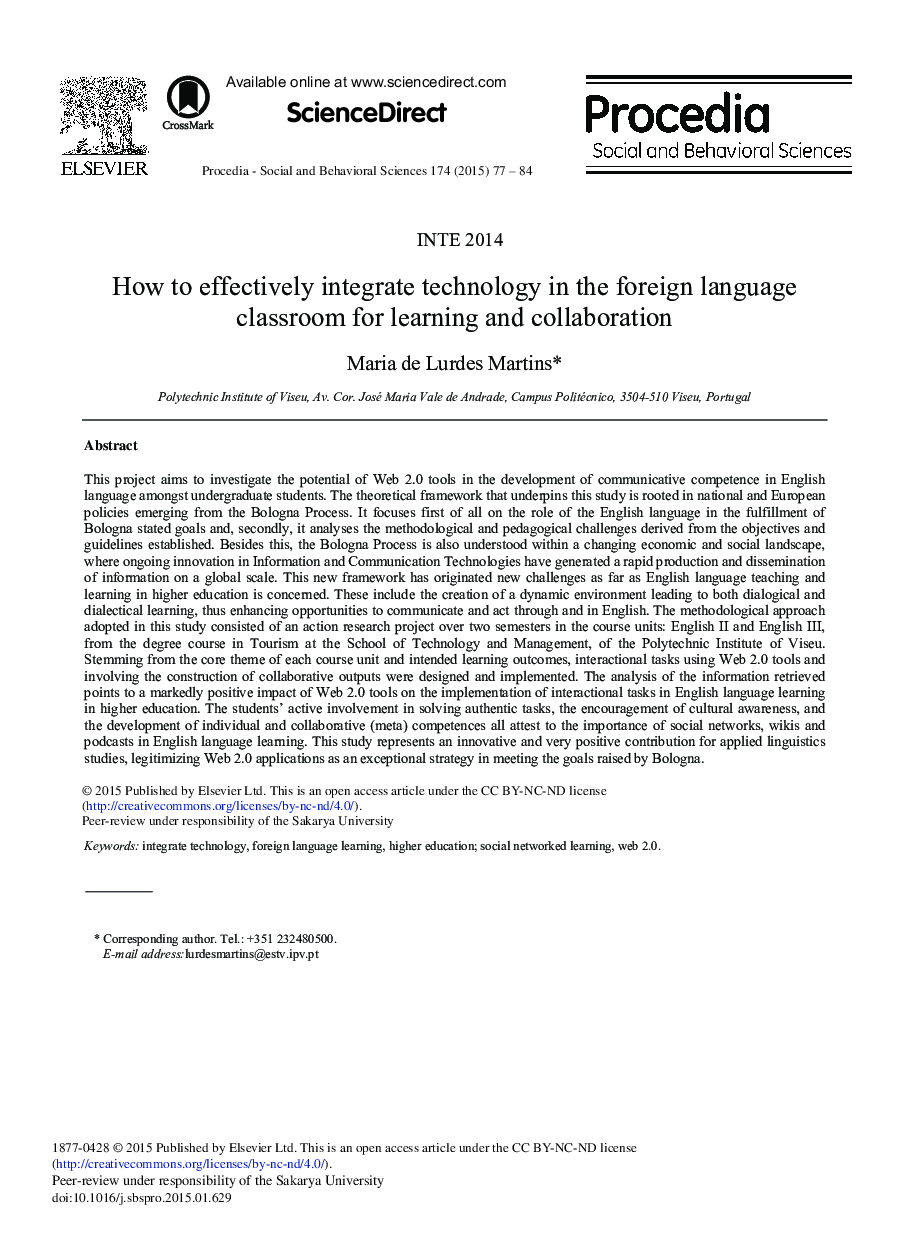| Article ID | Journal | Published Year | Pages | File Type |
|---|---|---|---|---|
| 1111205 | Procedia - Social and Behavioral Sciences | 2015 | 8 Pages |
This project aims to investigate the potential of Web 2.0 tools in the development of communicative competence in English language amongst undergraduate students. The theoretical framework that underpins this study is rooted in national and European policies emerging from the Bologna Process. It focuses first of all on the role of the English language in the fulfillment of Bologna stated goals and, secondly, it analyses the methodological and pedagogical challenges derived from the objectives and guidelines established. Besides this, the Bologna Process is also understood within a changing economic and social landscape, where ongoing innovation in Information and Communication Technologies have generated a rapid production and dissemination of information on a global scale. This new framework has originated new challenges as far as English language teaching and learning in higher education is concerned. These include the creation of a dynamic environment leading to both dialogical and dialectical learning, thus enhancing opportunities to communicate and act through and in English. The methodological approach adopted in this study consisted of an action research project over two semesters in the course units: English II and English III, from the degree course in Tourism at the School of Technology and Management, of the Polytechnic Institute of Viseu. Stemming from the core theme of each course unit and intended learning outcomes, interactional tasks using Web 2.0 tools and involving the construction of collaborative outputs were designed and implemented. The analysis of the information retrieved points to a markedly positive impact of Web 2.0 tools on the implementation of interactional tasks in English language learning in higher education. The students’ active involvement in solving authentic tasks, the encouragement of cultural awareness, and the development of individual and collaborative (meta) competences all attest to the importance of social networks, wikis and podcasts in English language learning. This study represents an innovative and very positive contribution for applied linguistics studies, legitimizing Web 2.0 applications as an exceptional strategy in meeting the goals raised by Bologna.
